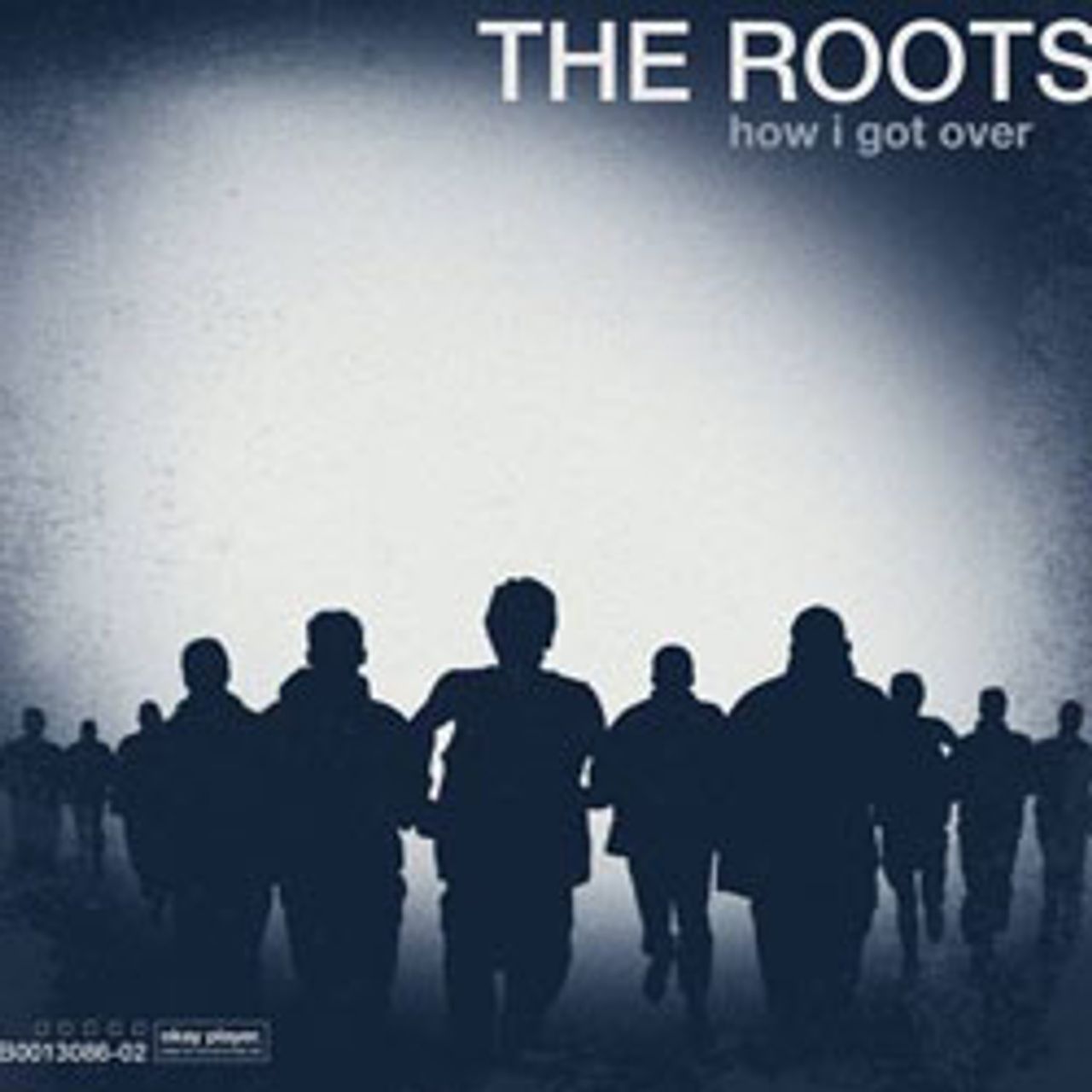 How I Got Over is the ninth full-length album by perennial hip hop band The Roots. With more than two decades in music behind them, The Roots are known for their exhilarating live performances and independent-minded, “alternative” approach to hip hop.
How I Got Over is the ninth full-length album by perennial hip hop band The Roots. With more than two decades in music behind them, The Roots are known for their exhilarating live performances and independent-minded, “alternative” approach to hip hop.
The band was formed in Philadelphia in 1987 by rapper Tariq “Black Thought” Trotter and drummer Ahmir “?uestlove” Thompson, both of whom attended the Philadelphia High School of Performing Arts. Their early work showed the influence of a more jazz-inspired, “socially conscious” group of hip hop musicians who began their careers in the late 1980s and early 1990s, including A Tribe Called Quest, Pete Rock and C.L. Smooth, Gang Starr and De La Soul.
In contrast to many of their contemporaries, The Roots initially eschewed sampling in favor of live instrumentation. In addition to Thompson on drums, the band’s classic lineup included Leonard Hubbard on bass and Kamal Gray on keyboards.
It was this lineup that would appear on Illadelph Halflife (1996) and Things Fall Apart (1999), two of the more remarkable hip hop albums of the 1990s. While the lineup has changed significantly over the years, with Trotter and Thompson remaining the only constant members, the group continues to produce some of the more interesting and ambitious works in hip hop.
Conceived of and recorded in the wake of the 2008 presidential elections in the US, How I Got Over sees The Roots increasingly concerned with social and political questions. Many critics have suggested the album’s title, taken from the 1951 gospel song “How I Got Over” composed by Clara Ward, was meant, in part, to signify the band’s relief at the exit of the Bush administration from the White House. While that may be the case, the album is anything but optimistic. Wherever their political sympathies may ultimately lie, the album is not a victory cry for the Democratic Party. Instead it paints a bleak portrait of life as it is faced by millions in the US. While it has its limitations, some of them significant, How I Got Over is one of the very few hip hop albums released in recent memory that captures some of the weight of the times.
On the album’s title track, Trotter decries the lack of assistance for those struggling with financial hardships. “If you get down on your luck/You can stand out, with a hand out, but nobody give a f—k,” goes the first verse. “Out here on these streets, we’re so young and all alone,” Trotter sings later. It’s a moving piece, overall.
Among the more interesting songs on the album is “Dear God 2.0.” In this song, in which the narrator experiences a crisis of faith, Trotter laments the tragic state of society and asks how God could allow things to go on this way. Trotter raps, “Acid rain, earth quakes, hurricanes, tsunamis, terrorists, crime sprees, assaults and robberies,” and demands to know “why is the world ugly when you made it in your image? And why is livin’ life such a fight to the finish?”
While the album may take its title from a famous gospel song, the narrator of “Dear God 2.0” finds little relief in religion. While the dramatization of this crisis of faith, whether Trotter is speaking for himself or not, is welcome, this loss of faith in a God has a tendency, for The Roots, to become a loss of faith in humanity. There is an undeniable pessimism that presents itself in many of The Roots’ latest songs. Where does this lead?
Though The Roots seem genuinely passionate and sympathetic toward the plight of millions of people faced with a growing assault on their living conditions, the group’s rallying cry at the end of the day is unfortunately one of self-reliance and a single-minded dedication to one’s self-interests. In some songs, like “Right On” and “Doin’ It Again,” this self-reliance gives way to self-absorption. Here Trotter retreats from social questions and focuses on himself. He raps about “rising up out of the flames like a phoenix” and assures his listeners he is “above and beyond the limit.”
In the album’s final “bonus” song, “Hustla,” Trotter and his guest rappers express the hope that their children won’t fall victim to the same hardships they have endured. Regrettably, the rappers say they want their children to grow up to be “hustlers.” Over a loop of what sounds like a child crying, the song says, “baby be a hustler, if not then you’re only a customer!” This is essentially endorsing the same cutthroat behavior denounced earlier as the only way out of poverty and struggle.
While talented, The Roots are at a loss when it comes time to deal with the complexities of social life in the US. An album which, in its best moments, movingly protests against social inequality finishes off in cynical territory.
